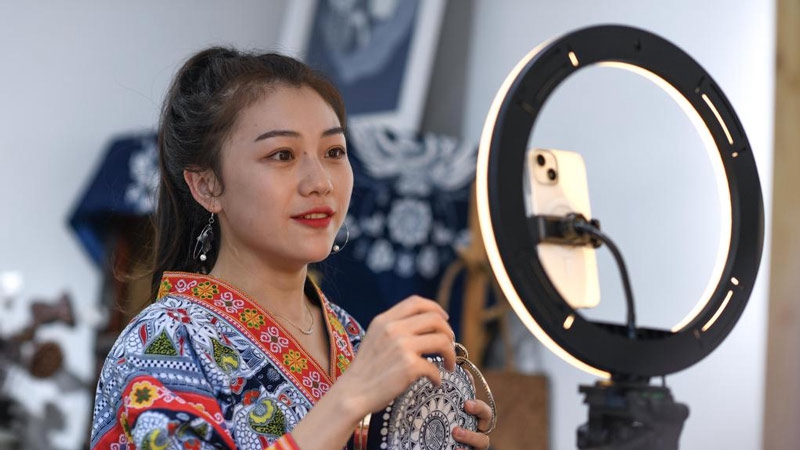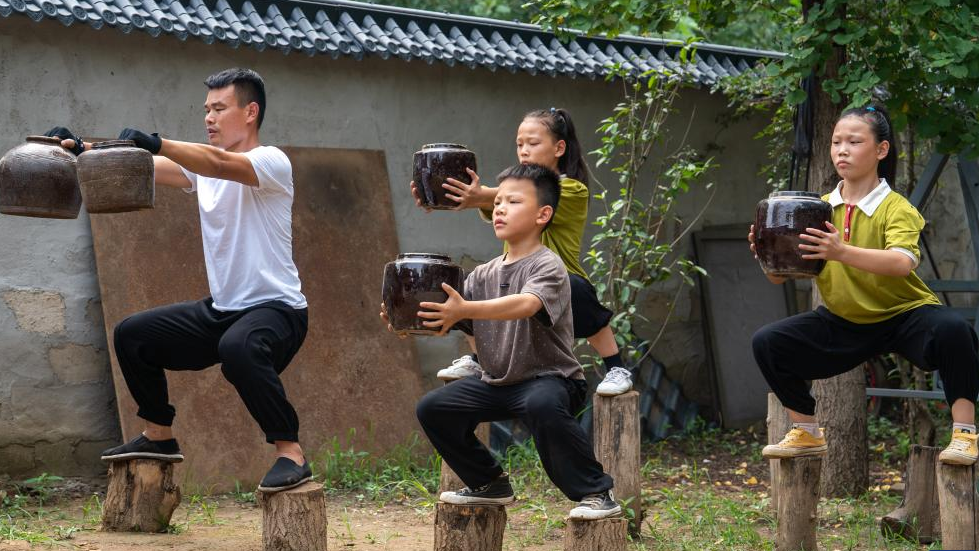Young talents inject impetus into China's sci-tech development
TAIYUAN, Aug. 30 (Xinhua) -- The 2nd China Space Science Assembly in Taiyuan City, north China's Shanxi Province, has attracted nearly 500 academicians and experts from over 220 research institutions, universities and enterprises.
During the four-day event, which ended on Sunday, scholars in fields such as spacecraft design and earth science delivered speeches encouraging young people to contribute to the country's space exploration endeavors.
"Young people are energetic and possess the ability and willingness to innovate," Sun Zezhou, a scholar on spacecraft design said in his speech.
In the realm of space science in China, an increasing number of young talents are taking the center stage.
The China National Space Administration revealed at a press conference in January that the average age of research team members of China's cutting-edge space science projects such as China's lunar exploration program and BeiDou Navigation Satellite System is between 30 and 40 years old.
Zhang Aibing, 45, was awarded for his contributions to China's space science at the opening ceremony of the event. Zhang has been working at the National Space Science Center of the Chinese Academy of Sciences since 2003.
During the past nearly two decades, he has taken part in multiple space exploration projects. Over 60 percent of the members in the research team led by Zhang are aged below 40.
He said he believes that young researchers are inquisitive and energetic, and are better at thinking outside the box, which sometimes plays an extraordinary role in promoting scientific research.
Furthermore, young people are becoming the "trendsetters" of various cutting-edge technologies in China.
According to a report released by the National Academy of Innovation Strategy in June, the majority of China's scientific and technological human resources are young and middle-aged, and about three-quarters of them are aged 39 and below.
Li Qinghui is pursuing a doctorate degree at Shanxi University and did not go back home to spend summer vacation this year due to her tight schedule.
The 25-year-old is a member of a research team that is focusing on the design of an optical system to provide technical support for a ground-based gravitational wave observatory.
The system is expected to help better study the evolution of the universe and understand its movement.
"I spend six days in the lab from 8 a.m. to 10 p.m. a week," said Li, adding that she is honored to be part of this cutting-edge scientific project.
China has always attached great importance to the cultivation of talents. A meeting of the Political Bureau of the Communist Party of China Central Committee reviewed a plan for talent development during the 14th Five-Year Plan period (2021-2025) in April this year.
The meeting called for accelerating the building of world-class hubs for talent and innovation, with Beijing, Shanghai and the Guangdong-Hong Kong-Macao Greater Bay Area serving as demonstration areas.
Calling for more efforts to foster scientists with strategic value and give full play to their roles, the meeting stressed nurturing leading talent and innovation teams in science and technology, as well as a large number of outstanding engineers.
"I hope young talents can maintain their curiosity and creativity, and expand their horizons while doing down-to-earth scientific research to contribute to the development of space science in China and for humankind," Sun said.
Photos
Related Stories
- Over 85 pct young Chinese intend to have side jobs: survey
- Xi encourages young people to live up to the times
- Chinese homemakers become younger
- New economy changes young urban people's lifestyles
- Youngsters attracted by high technology at robot carnival in Hohhot
- Young handicraftsmen in cities
- Post-90s founds social network site 10years.me
- The place where dream starts
- Top 25 foods to keep you young
- A free sky for music
Copyright © 2022 People's Daily Online. All Rights Reserved.









